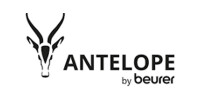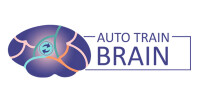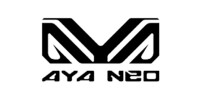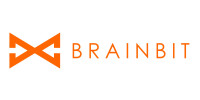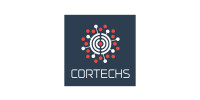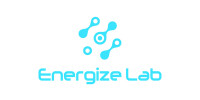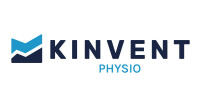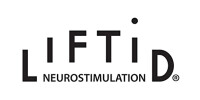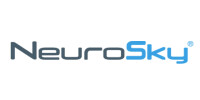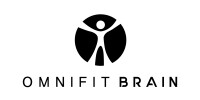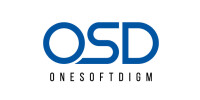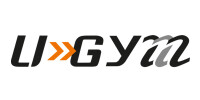
AI (artificial intelligence) in sports
Artificial Intelligence (AI) is becoming increasingly important in sport. It can predict performance, identify talent and prevent injuries. In this report, we look at how AI is already being used in sport, the opportunities it offers and the challenges it poses.
The role of AI in sport
AI loves data
AI systems are particularly efficient at processing large amounts of data. The more data they receive, the more accurate they become at making predictions, analysing movements and detecting postural errors. This opens up a wide range of possibilities in sport.
Where is AI already being used?
AI in performance diagnostics
In performance diagnostics, extensive data is collected from athletes, including training data, pulse, oxygen and blood values. At the Technical University of Kaiserslautern, Germany, this data is being extensively used to accurately predict the results of performance diagnostics using artificial intelligence (AI). This advancement not only allows for a more accurate assessment of an athlete's performance, but also has the benefit of avoiding time-consuming and costly sports testing.
Manufacturers such as Hexoskin, Astroskin, Sensoria and Hidalgo offer specialised AI-based performance diagnostics tools, which are available from the renowned MindTecStore. What sets these suppliers apart is that their intelligent sportswear is not only designed for professional competitive sports and professional clubs, but can also be used by recreational athletes and fitness enthusiasts. Professional performance diagnostics thus facilitate access to high-quality analysis and evaluation and are increasingly being used in the everyday lives of competitive athletes, professional clubs, amateur clubs and sports and fitness enthusiasts. These technological developments are helping to take sports performance and health to a new level.
Fitness trackers and data analysis in cycling
The use of fitness trackers to record stress and fatigue responses has become an integral part of everyday sport. Cycling teams such as Bora-Hansgrohe already employ six people to analyse the extensive data on wattage, heart rate and other parameters. In the world of Formula 1, data analysis has long played a crucial role in determining race strategies. Software companies are also increasingly using artificial intelligence (AI) for this purpose.
High-quality fitness trackers such as Biostrap, Cosinuss and Healbe are available in the MindTecStore. These devices provide accurate information on signs of fatigue, pulse and other parameters and are suitable for both professional and home use. This makes it possible to keep an even closer eye on your health and fitness and to take measures tailored to your individual needs.
Error analysis and injury prevention
Artificial intelligence (AI) is able to detect deformities in the body that are difficult for even experienced doctors to detect. A 3D scanner is used to create a digital avatar of the athlete. This digital image of the athlete is then meticulously analysed by the AI. The AI recognises patterns and anomalies that indicate potential problems. This valuable information can be used by coaches and therapists to prevent injuries and optimise athletic performance.
One of the leading manufacturers in this field is Kinvent. The French brand has already established itself in the world of major professional football clubs and is now gradually extending its influence into professional physiotherapy practices. Kinvent products are available in the renowned MindTecStore and offer an innovative solution for improving movement analysis and injury prevention in sport.
Training optimisation through AI
AI systems open up the possibility of analysing training data and taking athletes' training to a new level. They can accurately track training progress and create personalised training plans to maximise athletic performance.
An illustrative example is the use of AI by professional sprinters to perfect their running technique. Sensors on the legs and in the shoes collect precise data on movement and ground reaction force. This data is used to make targeted adjustments during training.
An outstanding product in this area is the Sensoria running sock, which provides a detailed analysis of running style, running technique and cadence. A virtual coach is available via a training app that actively guides the user during training to improve and optimise their technique.
Myontec sportswear also offers the option of motion analysis, which can significantly improve and optimise movement sequences.
All Sensoria and Myontec products are available from the renowned MindTecStore, helping athletes to take their training to the next level and achieve their sporting goals.
Scouting in football
In professional football, AI is used for player scouting. Clubs such as Werder Bremen use AI to identify potential talent. AI can analyse a player's behaviour and skills, providing vital information for transfer planning.
Match strategy
Coaches use AI analysis to optimise match strategies. AI systems can analyse opponent data and identify patterns that can be used to develop tactics and game plans.
Example: A football coach can use AI software to analyse the style of play of an opposing team. The software could identify patterns in the opponent's attacking and defensive strategies and advise the coach on how to prepare his own team more effectively for the game.
What is possible in the future?
Artificial intelligence (AI) is increasingly finding its way into professional sport. Professional sports clubs, sports clinics and research institutes are increasingly relying on this technology to improve their athletes' performance and prevent injuries.
This trend is set to continue in the future and will increasingly penetrate the private sector. A large number of these innovative products are already available in the MindtecStore, so that private users can also benefit from this technological development and take their health and sports performance to a new level.
Can AI replace humans?
Responsibility and human interaction
As powerful as AI is, it cannot completely replace humans. Particularly in sport, where human interaction and the personalised approach of coaches play an important role, AI is not a substitute for the foreseeable future. Responsibility for decisions made by AI must also be clearly regulated. The German Ethics Council emphasises that humans should always retain ultimate control.
Conclusion
Artificial intelligence (AI) is revolutionising sport by enabling performance prediction, talent identification and injury prevention. We have looked at how AI is being used in sport and its potential.
AI is based on data processing and precise analysis, opening up a wide range of possibilities for athletes, coaches and clubs. In performance diagnostics, we saw how AI is being used at the Technical University of Kaiserslautern, and manufacturers such as Hexoskin, Astroskin, Sensoria and Hidalgo are offering smart sportswear that is accessible to professional and recreational athletes alike.
Fitness trackers such as Biostrap, Cosinuss and Healbe are well established and help to accurately record stress and fatigue responses. AI can even detect misalignments in the body, allowing manufacturers such as Kinvent to offer innovative solutions to prevent sports injuries.
Training optimisation through AI takes training to a new level, and AI is already being used in professional football for scouting and match strategy development. However, AI cannot replace human interaction and responsibility.
Overall, the integration of AI in sport is an exciting development that will take athletic performance and health to a new level, both professionally and privately.
Internal further links:
Category: Intelligent sportswear for vital data monitoring/ performance diagnostics
Category: Intelligent sportswear for movement analysis/injury prevention
Category: Intelligent sports equipment for sports and rehab
Category: Intelligent fitness trackers
External links:
Imaginovation - AI-in-sports-industry
That´s AI: AI in Sports
Author: Robin Weitz, update from 14.11.2023
© www.mindtecstore.com 2023






